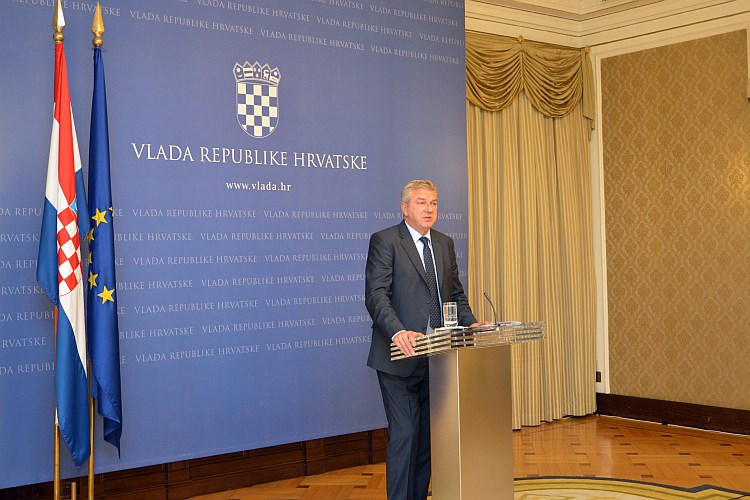- Published: 10.09.2015.
Interior minister Ostojic: Croatia is willing to accept refugee quota
Interior Minister Ranko Ostojic said on Thursday that Croatia was ready to take in more refugees from Greece, Italy and Hungary, as proposed by the European Commission yesterday.
Since 120,000 refugees currently in Hungary, Italy and Greece need to be relocated to other European Union countries, new quotas have been proposed.
Ostojic said Croatia was ready for that and that it had already shown solidarity with the EU member states hardest hit by the refugee crisis. "We will continue to do so in future too, namely we will be ready to take in the number of people that has been proposed," he told reporters.
In July, the Croatian government decided to take in 550 persons. According to the Commission's latest plan, presented by President Jean Claude Juncker on Wednesday, Croatia is expected to take in another 1,064.
"This proposal will be discussed at an extraordinary session of interior ministers in Brussels on September 14. After that, the European Council has to adopt a decision. This time Mr Juncker and the European Commission are seeking decisive measures," Ostojic said.
Asked to describe the process of receiving persons seeking international protection or asylum, he said they should first agree to stay in Croatia but that most wanted accommodation in "Schengen countries." Those who wish to stay in Croatia are interviewed, followed by a procedure to establish if there are obstacles to their being accommodated in Croatia, he said.
If there is no obstacle, they are placed in a centre for international protection seekers, of which there are two in Croatia. The one in Kutina can receive 100 people and the one in Zagreb 600, Ostojic said.
They are then put in an integration programme which, aside from health care, envisages accommodation, food and learning Croatian, and they are acquainted with employment possibilities in deficit occupations. If a person finds a job, Croatia no longer has the obligation to assist them for two years through the Social Welfare Ministry, Ostojic said.
Providing housing does not mean giving a flat as a gift, but using flats co-owned by the State Property Management Office up for that purpose, he added.
Ostojic thanked non-governmental associations for their help, including the Red Cross, the Croatian Legal Centre, and the Centre for Peace Studies, for expressing willingness to participate in integration programmes.
He also thanked German Chancellor Angela Merkel, saying she had "shown a high statesmanly awareness" and that she would be remembered for "being willing to preserve European values, which envisage showing solidarity with those who need international protection. She has played one of the most important roles in that," he said.
(Text: Hina)
(Text: Hina)
